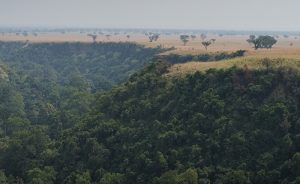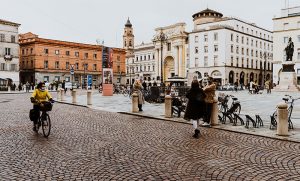In a year seemingly filled with more darkness than light—global pandemic, fires, social injustices, hurricanes, to name a few—we’re highlighting “bright spots” that didn’t make mainstream. We want all to thrive and be prosperous on our one planet, so we’re highlighting a few heartwarming, inspiring, good-for-the-planet bright spots to end the year on a positive note.
- NASA supercomputing study breaks ground for tree mapping, carbon research. It turns out trees growing outside of forests often aren’t included in tree mapping because individual trees or small clusters of trees don’t appear well in satellite imagery. Using the technique from this study, researchers will be able to map non-forest trees at a level of detail that would normally take months or years with traditional methods. This data is vital for assessing how much carbon is stored by trees.
- New company puts foot on the gas to reduce cows’ methane. A new company in Australia is set to produce a feed supplement for beef and dairy cattle that may help reduce their methane emissions. Trials have shown methane emissions were reduced by more than 80%. We’re inspired by this intersection of science and industry that may benefit our planet.

- One Tree Planted and the Jane Goodall Institute’s new wildlife habitat and corridor restoration project. The two organizations are teaming up to plant 3 million trees in Uganda’s Albertine Rift, where millions of hectares of forest have been lost due to human activity. Forest restoration will begin to reverse the negative effects that logging, human settlement, and agriculture have had on the area, boosting the health of the ecosystem and the area’s capacity to regenerate biological resources.
- The Success Story of the “Too Good To Go” App in Europe. An app developed in Denmark is fighting food waste across Europe, and it has kept nearly 30 million meals out of the trash so far. ‘Too Good To Go’ connects businesses with excess food to consumers who can purchase the food at a reduced price. We love that this app is making it easy for consumers to help divert food waste from landfills.
- Himalayas visible for first time in 30 years as pollution levels in India drop. In April, lockdowns intended to reduce the spread of COVID-19 provided residents in Jalandhar, India with majestic views of the Himalaya Mountains some 200 kilometers away. What a beautiful opportunity to reconnect with the local landscape, from home.
- Italian cities see bicycle boom after COVID-19
lockdown. In an effort to curb the spread of COVID-19 by keeping people off of public transportation, the Italian government is subsidizing the cost of bicycles for city dwellers. And residents are taking advantage of the savings; nearly 540,000 bikes have been sold since bike shops reopened in May. With the majority of the human population living in urban areas, we hope this trend of shifting to carbon-free transportation continues long after the pandemic has ended.
COVID-19 by keeping people off of public transportation, the Italian government is subsidizing the cost of bicycles for city dwellers. And residents are taking advantage of the savings; nearly 540,000 bikes have been sold since bike shops reopened in May. With the majority of the human population living in urban areas, we hope this trend of shifting to carbon-free transportation continues long after the pandemic has ended. - Amazon initiative pays farmers and ranchers to keep the forest standing. The Brazilian and U.S. nonprofit creators of the initiative believe the benefits to the entire planet outweigh the monetary cost of paying farmers and ranchers to preserve native vegetation. They hope it will serve as an example for other entities to reproduce. We look forward to observing the progress and wish the initiative much success.



